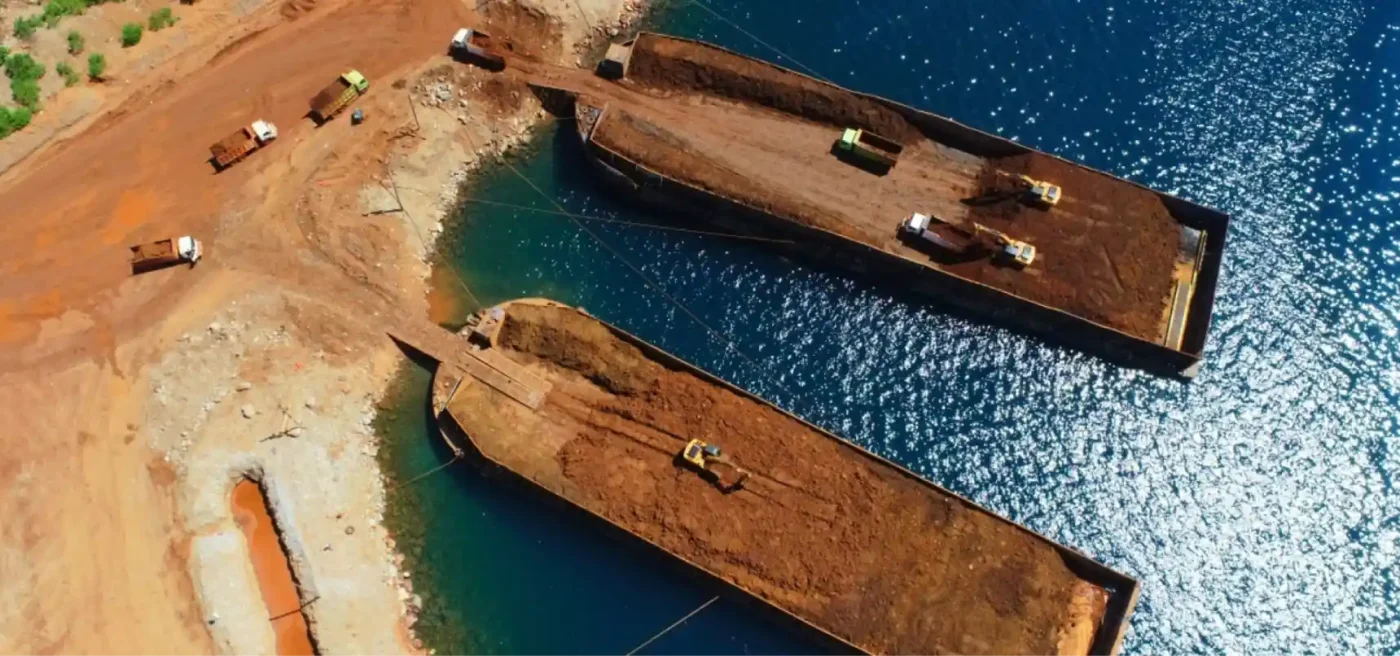Indonesia’s Energy and Mineral Resources Ministry has temporarily suspended nickel mining operations in Raja Ampat, a biodiversity-rich archipelago in West Papua, citing significant environmental risks. The decision, announced on [insert date if available from source], underscores growing tensions between the country’s push for economic growth through resource extraction and the urgent need to protect its globally significant natural ecosystems.
Immediate Suspension Sparks Debate
The ministry’s directive targets multiple mining concessions in Raja Ampat, an area renowned for its coral reefs, marine life, and status as a UNESCO Global Geopark. Officials stated that the suspension aims to prevent irreversible damage to the region’s delicate environment, which supports both local livelihoods through tourism and fishing and global biodiversity. While the exact duration of the halt remains unclear, the move follows mounting pressure from environmental groups and local communities who have long warned of the ecological fallout from mining activities.
“We are committed to balancing economic development with environmental sustainability” said a spokesperson for the Energy and Mineral Resources Ministry. The spokesperson added that a thorough assessment of mining impacts would be conducted during the suspension, though no specific timeline for this review was provided.
The decision has ignited a broader debate about Indonesia’s reliance on nickel, a critical component in electric vehicle batteries and a cornerstone of the country’s export economy. Indonesia is the world’s largest producer of nickel, and the government has aggressively promoted mining to position itself as a global leader in the green energy supply chain. However, operations in ecologically sensitive areas like Raja Ampat have drawn international scrutiny, with critics arguing that short-term economic gains cannot justify long-term environmental destruction.
Environmental Stakes in Raja Ampat
Raja Ampat, often described as the “Amazon of the seas,” hosts over 1,500 species of fish and 75% of the world’s coral species, making it one of the most biodiverse marine environments on Earth. Mining activities, particularly nickel extraction, pose severe threats through deforestation, water pollution, and habitat disruption. Runoff from mining sites can contaminate coastal waters, harming coral reefs and the marine life that depends on them, while land clearing disrupts the delicate balance of terrestrial ecosystems.
Local communities, many of whom rely on fishing and eco-tourism, have reported declining fish stocks and damaged coral reefs in areas near mining operations. Environmental activists have also highlighted the risk of toxic waste spills, a recurring issue in Indonesia’s mining sector, which could devastate Raja Ampat’s ecosystems if not addressed. “The damage could be catastrophic and irreversible” said a representative from a local conservation group, urging the government to prioritize long-term protection over temporary economic benefits.
The suspension, while welcomed by environmentalists, raises questions about enforcement. Indonesia has faced challenges in monitoring and regulating mining activities, particularly in remote regions like West Papua. Reports of illegal mining and lax oversight have fueled skepticism about whether the temporary halt will translate into meaningful change. If confirmed, violations during the suspension could undermine the government’s stated commitment to sustainability.
Economic Implications of the Halt
Indonesia’s nickel industry is a major driver of economic growth, contributing billions of dollars annually to the national economy. The country has invested heavily in downstream processing, banning raw nickel exports in 2020 to encourage the development of domestic smelters and refineries. This policy has attracted significant foreign investment, particularly from China, and positioned Indonesia as a key player in the global transition to renewable energy.
The suspension in Raja Ampat, though limited in scope, could signal a shift in policy as the government grapples with balancing economic ambitions against environmental imperatives. Industry stakeholders have expressed concern that such halts could deter investors and disrupt supply chains, especially as global demand for nickel continues to surge. “We need clear regulations and timelines to ensure stability” said an executive from a major mining company operating in Indonesia, speaking on condition of anonymity.
The financial impact on local workers is another pressing issue. Mining operations in Raja Ampat employ hundreds of people, many of whom now face uncertainty. While exact figures on job losses are unavailable, community leaders have called for government support to mitigate the economic fallout. Alternative livelihoods, such as sustainable tourism, have been proposed, but developing these sectors requires time and investment—resources that may not be immediately available.
On a broader scale, the halt could affect Indonesia’s nickel output, though analysts suggest the impact will be minimal in the short term given the country’s vast reserves elsewhere, particularly in Sulawesi. Still, the decision may prompt other regions to reassess their own mining practices, especially in areas with high ecological value.
Global Context and Green Energy Dilemma
Indonesia’s nickel boom is intricately tied to the global push for green energy. Nickel is a critical material in lithium-ion batteries, which power electric vehicles and renewable energy storage systems. As countries worldwide commit to net-zero emissions targets, demand for nickel is expected to skyrocket, placing Indonesia at the center of the clean energy revolution.
Yet, the environmental cost of nickel mining complicates this narrative. Extracting and processing nickel generates significant carbon emissions and often involves destructive practices, raising ethical questions about the “green” label attached to these technologies. In Raja Ampat, the clash between economic development and environmental protection mirrors a global dilemma: how to transition to sustainable energy without sacrificing the very ecosystems that sustainability aims to protect.
International organizations, including the United Nations, have called for stricter regulations on mining in biodiversity hotspots. Some experts advocate for alternative sourcing strategies, such as recycling nickel from used batteries, to reduce reliance on virgin materials. However, these solutions remain in early stages and cannot yet meet global demand.
For Indonesia, the Raja Ampat suspension could serve as a test case for integrating environmental safeguards into its nickel strategy. If successful, it may set a precedent for other mining regions, both within the country and globally. However, without robust enforcement and clear policy frameworks, there is a risk that such measures remain symbolic rather than transformative.
Public and Political Reactions
Public sentiment on the suspension is mixed. Environmental groups and local communities in Raja Ampat have largely welcomed the decision, viewing it as a critical step toward protecting their homeland. Social media platforms, including posts on X, reflect a groundswell of support for conservation, with many users praising the government’s responsiveness to public concerns. However, others argue that the halt does little to address systemic issues in the mining sector, pointing to ongoing operations in other ecologically sensitive areas.
Politically, the decision has exposed divisions within Indonesia’s leadership. While the Energy and Mineral Resources Ministry has framed the suspension as a commitment to sustainability, other factions within the government emphasize the importance of resource extraction for national development. President Joko Widodo’s administration has championed industrial growth, and some observers speculate that the halt may face pushback from pro-mining policymakers. If true, this internal conflict could shape the future of environmental policy in Indonesia.
Looking Ahead: A Balancing Act
As Indonesia navigates the fallout from the Raja Ampat suspension, the stakes extend far beyond the archipelago’s shores. The decision represents a pivotal moment in the country’s effort to reconcile its economic aspirations with its environmental responsibilities. For local communities, the hope is that the halt marks the beginning of a broader shift toward sustainable development—one that prioritizes the health of ecosystems over short-term profits.
Yet, questions linger about the government’s long-term strategy. Will the suspension lead to permanent protections for Raja Ampat, or is it merely a temporary reprieve? How will Indonesia address the economic needs of workers and communities affected by the halt? And can the country maintain its position as a nickel powerhouse while safeguarding its natural heritage? As assessments unfold and debates continue, the world watches to see whether Indonesia can chart a path that serves both its people and its planet.
















